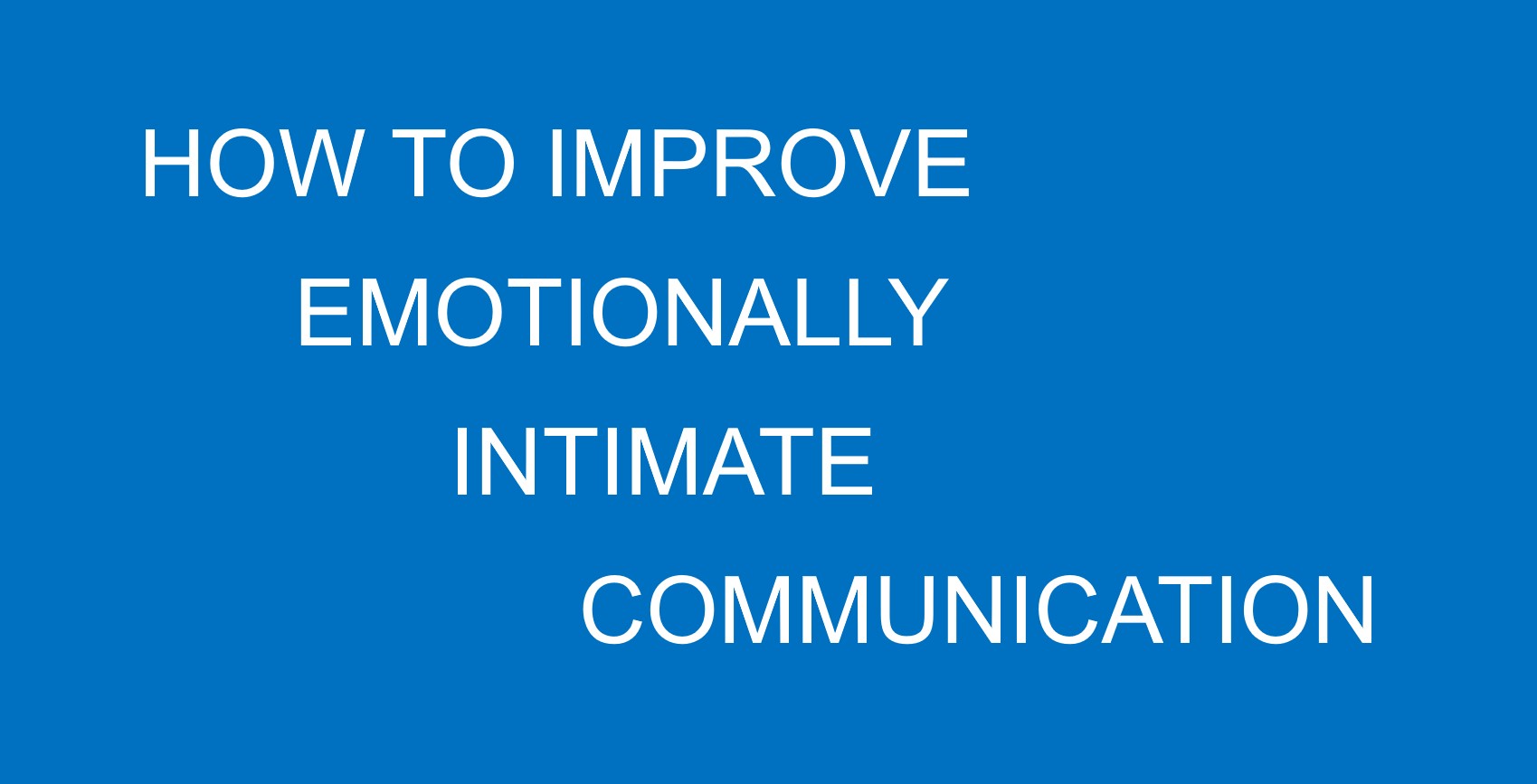
Poor communication is a major problem in many relationships. In fact, of all the problems that bring couples to counseling, poor communication is at or close to the top . Why Do Couples Seek Marital Therapy? | Request PDF (researchgate.net)
Of course, there are different types of communication. There are simple informational exchanges like “What time will you be home for dinner?” However, emotional communication is the kind that many folks have trouble with. Rather than simple, intimate communication, i.e., honestly sharing what your’e feeling and what you want, is complicated.
There are various reasons why couples have trouble talking with one another about intimate things. To do so requires being willing to be vulnerable and willing to listen.
Here are some tips to improve your intimate communication:
Problem 1 — Unrealistic Expectations and Assumptions.
There are two fundamental mistakes that interfere with intimate communication: Having both unrealistic expectations ( That good communication just happens) and false assumptions (That because one partner wants to talk, the other does, too.) Intimate Communication | Pastoral Counseling Syracuse NY
Given the emotional complexity of intimate conversations, successful communication requires adequate preparation. Rather than thinking ahead, too many serious conversations erupt impulsively without planning.
It’s ironic. If we decide to call a friend, we don’t assume that they are available to talk. The first thing we often say is, “Am I interrupting anything ?” or “Is this a good time to talk ?”
It’s funny how many couples seem to take their partner for granted when it comes to talking and don’t extend to them the same common courtesy that they would a friend or neighbor.
Problem 2 Lack of Preparation
A good conversation with your partner rarely just happens. It takes thought and preparation. Obviously, not all conversations are intimate or require invitations. However, communicating what you feel and want in the relationship requires special care.
The good news is that there is a simple remedy. With a little practice, partners can learn how to prepare for an important conversation.
It is important to understand that three things are needed before one can have a serious conversation. 1) You are clear about what you want to say, 2) Your partner is willing to talk and 3) Both agree on a good time to have the conversation.
Preparing for an Intimate Conversation.
— JOURNALING A good way to have a serious dialog with your partner is to think and write about it in advance. Journaling about the feelings that you want to share in advance is helpful because it allows you to be honest with your feelings and write without restriction.
Unprocessed feelings can sometimes confuse the issue and come off as blaming or attacks. Once intense feelings are expressed, it’s easier to focus on the issue and talk about it constructively.
When you are clear about what you want to say or ask, you can let your partner know you want to talk and agree on a good time to do it.
— SEND AN INVITATION Once you are ready to talk, the next step is letting your partner know and figuring out a good time to do it. You can inform them in all sorts of ways , in person, a letter, a card even a text or email.
However you do it, the key is to be aware that the conversation may take some time to occur.
What If the Invite is Declined ?
While you may be eager and ready to talk, your partner may feel differently. Understanding that partners are not always in sync and having realistic expectations about the nature of communicating is crucial to avoiding both personal disappointment and/or unpleasant arguments.
Again, journaling is way to deal with the frustration of your partner’s unavailability. Writing honestly about your feelings is an effective way to process and reduce the urgency of the need to talk, which in turn makes you more open to compromise at a different time.
Of course, it is also important to emphasize that the partner who initially declines the invitation, then negotiates in good faith to find a mutually agreeable time to talk. Otherwise, a refusal is simply avoidance.
One caveat: With practice, these suggestions work and will improve your intimate communication. However, the ability of both partners to access and hear each other’s honest feelings sometimes requires professional help.
If you prepare for and negotiate a time to have a serious conversation and things do not go well, don’t give up. Talk to a licensed mental health professional.
Motivated by love and concern, partners grow in their knowledge of one another. Honesty and mutual respect create the level of trust needed to risk intimate communication.
When there it trust is and the risk is taken, the joy of sharing creates a lasting bond and blessing that surpasses all others.
Rev. Michael Heath, LMHC, Fellow AAPC 10 17 2024



